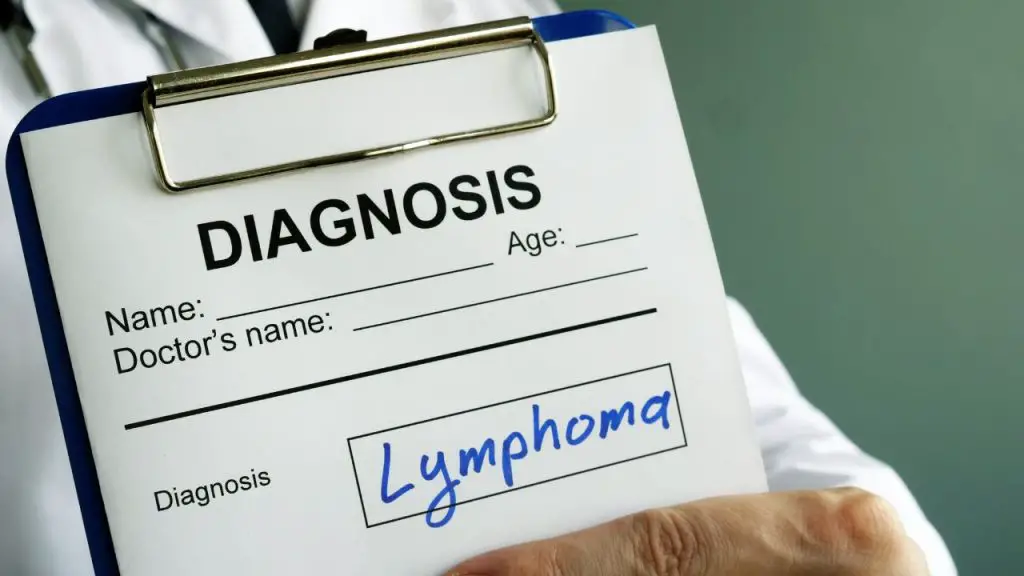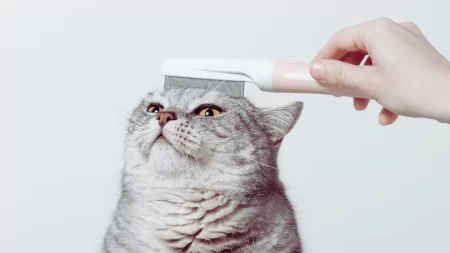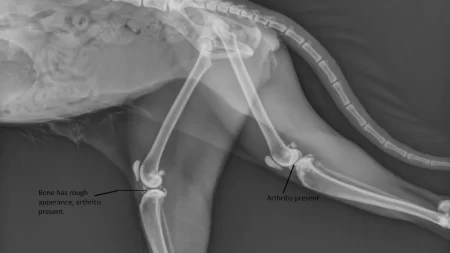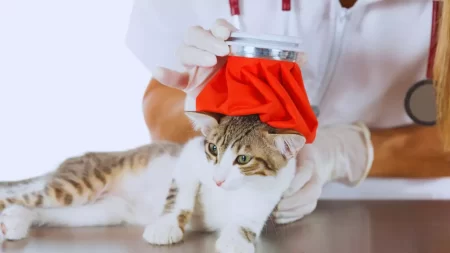The decision to euthanize a cat can be really difficult for a cat parent, but it is also quite distressing and inhuman to see your cat suffering from Feline lymphoma. There are different stages that decide whether you should choose to go with euthanization, such as – when the quality of life deteriorates, the pet is suffering from breathing difficulties or mobility issues, and is unable to play.
There would be a reduction in appetite or no appetite at all. If the prognosis and condition assessment states that the cats are in their terminal lymphoma stage, then you might have to choose to euthanize the cat.
Also, a vet would only recommend euthanization if, even after treating the cat with chemotherapy or radiation, the process does not successfully cure the cat. Thus, it would be a kind choice to help the cat find peace by choosing to pass away peacefully.
So, let’s get to understand when you have to let go of your pet
When to Euthanize Your Pet Cat?
The decision to euthanize your pet can be difficult, but sometimes it is the right choice for the cat who is in its deteriorating and final cancer stage. You need to ask yourself – Is the cat able to cope with the stress going on due to cancer? Is the cat able to move around freely as it used to? Has cancer affected the quality of life? Is the pain of cancer becoming unbearable for the pet?
Yes! Then euthanization would be the last option left for the cat.
Look for signs that would help you to make the right decision.
Lack of appetite
This is considered the most prominent and first sign which indicates that the cat is leading a poor quality of life. If even the tuna fish or chicken do not excite your cat or even the appetite stimulants are failing to revive the condition of the cat, then it indicates that the feline lymphoma is in its final stage.
Deteriorating quality of life
If the cat is just surviving, then you need to take this harsh decision, consult with the vet, and euthanize the cat. If the cat is no longer playing or interacting with the human companion and having difficulties in breathing, or it is in a difficult emotional state or unable to move, it is time for euthanization.
Infection in the lungs
Feline lymphoma can lead to pulmonary edema or the building up of fluids in the lungs. These can lead to trouble breathing which can lead to the cat refusing to eat completely. This further leads to complicated health issues. The cat can also suffer from pneumonia, asthma, or cardiomyopathy if the cancer is located in the pulmonary lung.
A declining physical state
If the administration of pain management medicine is not working or if you notice the physical condition of the cat is deteriorating day by day, then euthanization would be the right choice. If the behavior and personality of your cat suddenly become clingy or it tends to hide in a closet or any dark space of the house, then it indicates that the cat is suffering a lot.
Easily exposed to infection
During feline lymphoma, the cat can usually suffer from low immunity, and getting affected by infections become quite common. The cat even develops a chance of getting exposed to rabies. Thus, it is always recommended to consult with the vet from time to time during this situation and help the cat get relief from this situation.
Other symptoms
The cat might also suffer from difficulty in urinating if the tumor is located in the bladder. Other than this, oral cancer can lead to difficulty in eating or swallowing. There might be characteristic behavior or aggression during brain tumors. Basically, there are several stages of cancer, and when all the symptoms indicate the final stage, then you need to make your decision.
How Euthanization is done?
Euthanization helps the cat to pass away peacefully. A catheter is inserted into the vein of the cat by the vet. Heavy sedation is given, and right after that, an injection is provided that would euthanize the cat. It just takes just 3-4 minutes to complete the process, and you are not making the wrong choice by choosing to help your pet pass away peacefully.
What if You Decide to Delay the Euthanization?
A delay in deciding to euthanize a cat suffering from the last stage of feline cancer would simply be increasing its suffering. It is quite obvious that as a cat parent, you would be able to decide about euthanization, so these are the times when you need to consult with the vet. They can provide the best suggestion. Moreover, euthanization is only done when the cat needs help getting rid of the stressful health conditions, chemotherapy fails, and it becomes unbearable for the cat to go through the same process every day.







